|
Books Should Be Free Loyal Books Free Public Domain Audiobooks & eBook Downloads |
|
|
Books Should Be Free Loyal Books Free Public Domain Audiobooks & eBook Downloads |
|
Non-fiction |
|---|
|
Book type:
Sort by:
View by:
|
By: Voltairine de Cleyre (1866-1912) | |
|---|---|
 Selected Works: Haymarket Speeches
Selected Works: Haymarket Speeches
Voltairine de Cleyre (November 17, 1866 – June 20, 1912) was an American anarchist. She was skilled in many subjects and wrote essays, poems, letters, sketches, stories and speeches. These are her selected Haymarket speeches. | |
 Selected Letters, Sketches and Stories
Selected Letters, Sketches and Stories
Voltairine de Cleyre (November 17, 1866 – June 20, 1912) was an American anarchist. She was skilled in many subjects and wrote essays, poems, letters, sketches, stories and speeches. These are her selected letters, sketches and stories. | |
By: Friedrich Kerst | |
|---|---|
 Mozart, The Man and the Artist as Revealed in His Own Words
Mozart, The Man and the Artist as Revealed in His Own Words
Wolfgang Amadeus Mozart. His name is one of the most recognizable names in history and one of the most enduring of composers. At age 5, this “wunderkinder” took to the stage and began his life as a prolific and celebrated creator-genius of such luminous works the world has not known since. This collection of morsels taken from his personal letters is engaging and gives a look into the mind of the boy wonder. Was he mad? Was he miraculous? | |
By: William H. Prescott | |
|---|---|
 History of the Conquest of Mexico by William H Prescott (d. 1859)
History of the Conquest of Mexico by William H Prescott (d. 1859)
Much have I travell’d in the realms of gold,And many goodly states and kingdoms seen;Round many western islands have I beenWhich bards in fealty to Apollo hold.Oft of one wide expanse had I been toldThat deep-brow’d Homer ruled as his demesne;Yet never did I breathe its pure sereneTill I heard Chapman speak out loud and bold.Then felt I like some watcher of the skiesWhen a new planet swims into his ken;Or like stout Cortez, when with eagle eyesHe star’d at the Pacific – and all his menLook’d at each other with a wild surmise -Silent, upon a peak in Darien... | |
By: Richard Burton Deane (1848-1940) | |
|---|---|
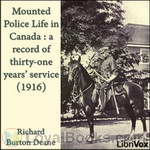 Mounted Police Life in Canada : a record of thirty-one years' service (1916)
Mounted Police Life in Canada : a record of thirty-one years' service (1916)
Learn more about the famous and respected Royal Canadian Mounted Police. This book is the personal recollections of one ‘Mountie’; his life, experiences and trials as an officer in a new frontier – The Canadian Northwest. | |
By: P. R. Kincaid | |
|---|---|
 The Arabian Art of Taming and Training Wild and Vicious Horses
The Arabian Art of Taming and Training Wild and Vicious Horses
Back in the day before automobiles, a good horse trainer and veterinarian was the equivalent of “Mr Goodwrench”. A badly behaving or unhealthy equine was equivalent to breaking down on the highway or running out of gas on a lonely stretch of highway somewhere in Utah. My sources tell me that most of the training methods are ok, but stay away from the medical tips unless you are prepared to become the poster boy or girl for the local SPCA. Listen with tongue in cheek, and check with a professional before attempting any of these techniques on a real animal. | |
By: Edwin F. Benson | |
|---|---|
 Life in a Mediaeval City, Illustrated by York in the XVth Century
Life in a Mediaeval City, Illustrated by York in the XVth Century
A short and gentle overview of mediaeval life in a large city. It lightly covers the class structure of society, local government, guilds, pageantry and punishment. The author has an easy, rhythmic style which leaves the reader wanting to find out more. | |
By: Rose Wilder Lane (1886-1968) | |
|---|---|
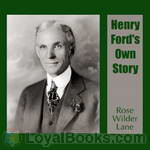 Henry Ford's Own Story
Henry Ford's Own Story
Rose Wilder Lane was a newspaper reporter, free-lance writer, political activist, and the daughter of Laura Ingalls Wilder, author of the "Little House" series of popular children's books. In this biography of Henry Ford, Ms. Lane worked directly with Ford to tell his story from his birth to his founding of the Ford Motor Company and his use of modern assembly lines to mass produce his cars. | |
By: William F. Cody | |
|---|---|
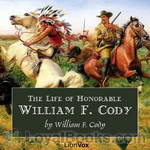 The Life of Honorable William F. Cody
The Life of Honorable William F. Cody
The life and adventures of Honorable William F. Cody–Buffalo Bill–as told by himself, make up a narrative which reads more like romance than reality, and which in many respects will prove a valuable contribution to the records of our Western frontier history. While no literary excellence is claimed for the narrative, it has the greater merit of being truthful, and is verified in such a manner that no one can doubt its veracity. The frequent reference to such military men as Generals Sheridan, Carr, Merritt, Crook, Terry, Colonel Royal, and other officers under whom Mr... | |
By: Stamp Act Congress of 1765 | |
|---|---|
 Declaration of Rights
Declaration of Rights
On June 8, 1765 James Otis, supported by the Massachusetts Assembly sent a letter to each colony calling for a general meeting of delegates. The meeting was to be held in New York City in October. Representatives from nine colonies met in New York. Though New Hampshire, Virginia, North Carolina and Georgia did not send delegates, the Assemblies of those missing colonies nonetheless agreed to support the works of the Congress. The meetings were held in Federal Hall in New York, and the delegates assembled on October 2... | |
By: Margaret Warner Morley (1858-1923) | |
|---|---|
 The Insect Folk
The Insect Folk
Through delightful outings with her students, a teacher introduces her class to the fascinating world of insects. She encourages her students to observe and ask questions. This is a wonderful science text for young children. | |
By: Cornelia Mee | |
|---|---|
 Exercises in Knitting
Exercises in Knitting
Mrs. Mee, her husband, and her sister ran a yarn and needlework import/warehouse business in Bath, England. Her books primarily contain practical everyday items that knit up quickly with the busy homemaker in mind. At this time, published knitting “receipts” did not contain abbreviations and were laborious to use. They were, however, rich in error! Later in her career, due to circumstances of war and the resulting social stress and poverty, many of her knitting books were printed for ladies’ charitable societies, which used her knitting “receipts” to clothe the poor mill workers who were out of work due to the American Civil War and the embargo of cotton. | |
By: Isabella L. Bird | |
|---|---|
 The Englishwoman in America
The Englishwoman in America
Isabella Bird travels abroad in Canada and the United States in the 1850s. As an Englishwoman and a lone female, she travels as far as Chicago, Prince Edward Island, and Cincinatti. Her observations on the trials and tribulations of the journeys are astute, if formed by her place and time in history. Adventures with pickpockets, omnibuses, cholera, and rat invested hotels deter her not. (Sibella Denton) | |
By: Lao Tzu | |
|---|---|
 Laotzu's Tao and Wu Wei
Laotzu's Tao and Wu Wei
The classic of the Way and of High Virtue is the Tao Teh Ching. Its author is generally held as a contemporary of Confucius, Lao Tzu, or Laozi. The exact date of the book’s origin is disputed. The book is divided into two parts, the Upper Part and the Lower Part. The Upper Part consists of chapters 1-37, and each chapter begins with the word “Tao,” or the Way. The Lower Part consists of chapters 38-81, and each chapter begins with the words “Shang Teh,” or High Virtue. This 1919 edition names the Lower Part as the Wu Wei, or translated variously as “not doing,” “non-ado,” or “non-assertion... | |
By: George L. Apperson (1857-1937) | |
|---|---|
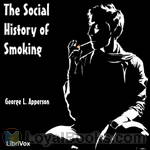 The Social History of Smoking
The Social History of Smoking
This work tells the history of smoking in England from the social point of view. Thus it does not deal with the history of tobacco growing or tobacco related manufacture, but is rather the story of how smoking has fitted in with the fashions and customs throughout the ages, and the changes in the attitude of society towards smoking. | |
By: St. Ignatius of Antioch | |
|---|---|
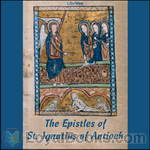 The Epistles of Ignatius
The Epistles of Ignatius
Ignatius of Antioch penned these letters to churches (Ephesians, Magnesians, Trallians, Romans, Philadelphians, and Smyrnaeans) and Polycarp on his way to martyrdom. Ignatius was an apologist for the Episcopal style of church government (as opposed to sole rule by a council of presbyters) which developed in the late first or early second century. Eager to die in imitation of his Savior, it was Ignatius who wrote this to the Roman church: “I am God’s wheat, and I am ground by the teeth of wild beasts that I may be found pure bread [of Christ].” | |
By: David Barrows | |
|---|---|
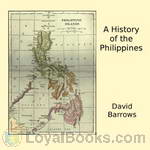 A History of the Philippines
A History of the Philippines
This book is one of the earliest studies of Philippine history by an American scholar. In preparation for this book, the author conducted ethnological studies of indiginous island tribes after the American war in the Philippines. Since this book was intended for the Philippine reader, the author nicely places the history of the Islands into the broader context of European and American history. | |
By: Anna Harriette Leonowens | |
|---|---|
 The English Governess at the Siamese Court
The English Governess at the Siamese Court
1862 Anna Leonowens accepted an offer made by the Siamese consul in Singapore, Tan Kim Ching, to teach the wives and children of Mongkut, king of Siam. The king wished to give his 39 wives and concubines and 82 children a modern Western education on scientific secular lines, which earlier missionaries’ wives had not provided. Leonowens sent her daughter Avis to school in England, and took her son Louis with her to Bangkok. She succeeded Dan Beach Bradley, an American missionary, as teacher to the Siamese court... | |
By: Eliza P. Donner Houghton (1843-1922) | |
|---|---|
 The Expedition of the Donner Party and Its Tragic Fate
The Expedition of the Donner Party and Its Tragic Fate
The Donner Party was a group of California-bound American settlers caught up in the “westering fever” of the 1840s. After becoming snowbound in the Sierra Nevada in the winter of 1846–1847, some of the emigrants resorted to cannibalism. Although this aspect of the tragedy has become synonymous with the Donner Party in the popular imagination, it actually was a minor part of the episode. The author was about 4 at the time. The first part of the book accounts the tragic journey and rescue attempts; the last half are reminiscences of the child orphan, passed from family to family while growing up. | |
By: Anonymous, attributed to Kathleen Luard (c.1872) | |
|---|---|
 Diary of a Nursing Sister on the Western Front 1914-1915
Diary of a Nursing Sister on the Western Front 1914-1915
The title is, I think, self explanatory. The nurse in question went out to France at the beginning of the war and remained there until May 1915 after the second battle of Ypres when she went back to a Base Hospital and the diary ceases. Although written in diary form, it is clearly taken from letters home and gives a vivid if sometimes distressing picture of the state of the casualties occasioned during that period. After a time at the General Hospital in Le Havre she became one of the three or four sisters working on the ambulance trains which fetched the wounded from the Clearing Hospitals close to the front line and took them back to the General Hospitals in Boulogne, Rouen and Le Havre. | |
By: Shaykh Hasan | |
|---|---|
 Persian Self-Taught (in Roman Characters) with English Phonetic Pronunciation
Persian Self-Taught (in Roman Characters) with English Phonetic Pronunciation
This volume is primarily intended to supply a working and practical knowledge of the Persian language, for the benefit of those who have not the time or the inclination to master the grammar, and yet require to use the spoken tongue for purposes of business or pleasure. With this object in view it supplies many vocabularies of words carefully selected to suit the needs of those holding communication with Persia and the Persians, classified according to subject, and a large number of colloquial phrases... | |
By: Dorothy Quigley | |
|---|---|
 What Dress Makes of Us
What Dress Makes of Us
A wickedly funny book of advice on women’s dress. However old, fat or plain you are, Dorothy Quigley will tell you what not to wear. | |
By: Edmund Gosse (1849-1928) | |
|---|---|
 Father and Son
Father and Son
Father and Son (1907) is a memoir by poet and critic Edmund Gosse, which he subtitled “a study of two temperaments.” The book describes Edmund’s early years in an exceptionally devout Plymouth Brethren home. His mother, who dies early and painfully of breast cancer, is a writer of Christian tracts. His father, Philip Henry Gosse, is an influential, though largely self-taught, invertebrate zoologist and student of marine biology who, after his wife’s death, takes Edmund to live in Devon... | |
 Gossip in a Library
Gossip in a Library
A collection of informal essays about books in his library. He combines commentary, translations, and humorous asides about authors and their subjects. | |
By: Charles H. Spurgeon (1834-1892) | |
|---|---|
 The Treasury of David
The Treasury of David
Charles Spurgeon was a British Particular Baptist preacher who remains highly influential among Christians of different denominations, among whom he is still known as the "Prince of Preachers". In his lifetime, Spurgeon preached to around 10,000,000 people, often up to 10 times each week at different places. He was the pastor of the congregation of the New Park Street Chapel (later the Metropolitan Tabernacle) in London for 38 years.Spurgeon was a prolific author of many types of works. This is the first volume of Spurgeon’s commentary on the Psalms, covering Psalms 1 to 26. | |
By: Bliss Perry (1860-1954) | |
|---|---|
 Fishing with a Worm
Fishing with a Worm
Fishing with a Worm by Bliss Perry includes the poignant and philisophical observations of a fly fisherman lured by the worm. Bliss Perry was a professor of literature at Princeton and Harvard Universities and spent time in Vermont writing and fly fishing. | |
By: Thornton Chase | |
|---|---|
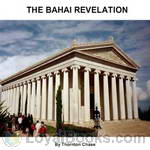 The Bahai Revelation
The Bahai Revelation
Thornton Chase (1847 – 1912) is commonly recognized as the first convert to the Bahá’í Faith of Occidental background. During his life he organized many Bahá’í activities in Chicago and Los Angeles and was considered a prominent Bahá’í. In 1894, Chase met Ibrahim Kheiralla, a Bahá’í from Beirut who had recently come to the United States. Chase and a small group of Chicagoans began to study the Bahá’í Faith with him. By 1895 he had completed the class and become a Bahá’í... | |
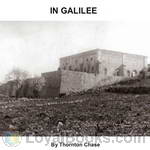 In Galilee
In Galilee
Thornton Chase (1847 – 1912) is commonly recognized as the first convert to the Bahá’í Faith of Occidental background. During his life he organized many Bahá’í activities in Chicago and Los Angeles and was considered a prominent Bahá’í. In 1907 Chase was able to go on pilgrimage. Though Chase was able to be with `Abdu’l Bahá in Akka for only three days, the experience transformed him. `Abdu’l Bahá, highly impressed by Chase’s qualities, conferred on him the title Thábit, “steadfast... | |
By: Asser, Bishop of Sherborne | |
|---|---|
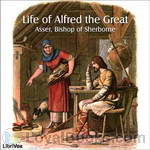 Life of Alfred the Great
Life of Alfred the Great
A life of King Alfred of England originally composed in Latin, possibly sometime around 888 A.D. by the Monk and Bishop Asser, although some scholars contend that the work was actually composed much later by an unknown hand. | |
By: Unknown; | |
|---|---|
 The Didache
The Didache
The Didache is the common name of a brief early Christian treatise (dated by most scholars to the late first or early second century), containing instructions for Christian communities. The text, parts of which may have constituted the first written catechism, has three main sections dealing with Christian lessons, rituals such as baptism and eucharist, and Church organization. It was considered by some of the Church Fathers as part of the New Testament but rejected as spurious or non-canonical by others, eventually not accepted into the New Testament canon with the exception of the Ethiopian Orthodox Church “broader canon... | |
By: Victor Appleton | |
|---|---|
 Tom Swift and His Sky Racer
Tom Swift and His Sky Racer
A $10,000 prize lures Tom into competing at a local aviation meet at Eagle Park. Tom is determined to build the fastest plane around, but his plans mysteriously disappear, which means Tom must redesign his new airplane from the beginning. | |
By: Chalkley J. Hambleton | |
|---|---|
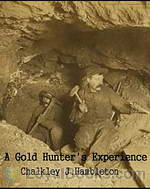 A Gold Hunter's Experience
A Gold Hunter's Experience
“Early in the summer of 1860, I had an attack of gold fever. In Chicago, the conditions for such a malady were all favorable. Since the panic of 1857 there had been three years of general depression, money was scarce, there was little activity in business, the outlook was discouraging, and I, like hundreds of others, felt blue.” Thus Chalkley J. Hambleton begins his pithy and engrossing tale of participation in the Pike’s Peak gold rush. Four men in partnership hauled 24 tons of mining equipment by ox cart across the Great Plains from St... | |
By: Havelock Ellis (1859-1939) | |
|---|---|
 Studies in the Psychology of Sex, Volume One
Studies in the Psychology of Sex, Volume One
The first of six volumes, this volume covers in extensive detail the topics of "The Evolution of Modesty", "The Phenomena of Sexual Periodicity", and "Auto-Eroticism". Written as an anthropological and psychological study from the point of view of Havelock, the famous British sexologist of the late 19th century, who was also a physician and social reformer. | |
By: Fabian Franklin | |
|---|---|
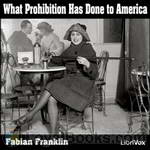 What Prohibition Has Done to America
What Prohibition Has Done to America
In What Prohibition Has Done to America, Fabian Franklin presents a concise but forceful argument against the Eighteenth Amendment of the U.S. Constitution. Beginning in 1920, this Amendment prohibited the sale and manufacture of alcoholic beverages in the United States, until it was repealed in 1933. Franklin contends that the Amendment “is not only a crime against the Constitution of the United States, and not only a crime against the whole spirit of our Federal system, but a crime against the first principles of rational government... | |
By: Irenaeus | |
|---|---|
 Against Heresies
Against Heresies
St. Irenaeus, Bishop of Lyons, describes several schools of Gnosticism which were prevalent among pre-Nicene Christianity. He then refutes these beliefs as heresies by contrasting them with what he describes as catholic, orthodox Christianity. Against Heresies demonstrates that earliest Christianity was a fascinating and diverse plethora of beliefs, debates, and schisms. | |
By: Mary Baker Eddy (1821-1910) | |
|---|---|
 The People's Idea of God
The People's Idea of God
“The improved theory and practice of religion and of medicine are mainly due to the people’s improved views of the Supreme Being.” (from The People’s Idea of God) | |
By: Lilli Lehmann (1848-1929) | |
|---|---|
 How to Sing (Meine Gesangskunst)
How to Sing (Meine Gesangskunst)
Lilli Lehmann, born Elisabeth Maria Lehmann, was a German operatic soprano of phenomenal versatility. She was also a voice teacher.She wrote: "Every serious artist has a sincere desire to help others reach the goal—the goal toward which all singers are striving: to sing well and beautifully." This is the 1915 second (expanded) edition of her book and includes many illustrations and diagrams, both physiological and musical, which the listener will find useful.Much of Lilli Lehmann's advice is complex and demanding - the standards which she set for herself were beyond the highest aspirations of most professional singers... | |
By: James E. Talmage | |
|---|---|
 The Story of Mormonism
The Story of Mormonism
A few years before James E. Talmage was called to serve as an apostle for the Church of Jesus Christ of Latter-day Saints (also known as the "Mormon" church), he gave a series of lectures at universities such as the University of Michigan and Cornell, describing the history of the Church. These lectures were later compiled and published as 'The Story of "Mormonism."' It is a concise, yet informative summary for all interested in learning the history and beliefs of the "Mormon" church. (Summary by Nathan Markham) | |
 The Great Apostasy: Considered in the Light of Scriptural and Secular History
The Great Apostasy: Considered in the Light of Scriptural and Secular History
Elder James E. Talmage, an apostle of The Church of Jesus Christ of Latter-day Saints, makes a survey of the Latter-day Saint view of the Great Apostasy. The book's subtitle states that it is a study "considered in the in the light of scriptural and secular history," and includes a discussion of the establishment of Christ's church in the meridian of time, the predictions and causes of its apostasy, or falling away, and the restoration of Christ's church in the Latter-days by a modern prophet. | |
By: Ferdinand Ossendowski (1876-1945) | |
|---|---|
 Beasts, Men and Gods
Beasts, Men and Gods
“Beasts, Men and Gods” is an account of an epic journey, filled with perils and narrow escapes, in the mold of “The Lord of the Rings.”The difference is: it’s all true.Ferdinand Ossendowski was a Pole who found himself in Siberia and on the losing side during the Bolshevik Revolution. To escape being rounded up and shot, he set out with a friend to reach the Pacific, there to take ship back to Europe. During his journey he fell in with dozens of other military men who shared the same objective… but nearly every one of them perished on the way... | |
By: Henry Ford | |
|---|---|
 My Life and Work
My Life and Work
Henry Ford profiles the events that shaped his personal philosophy, and the challenges he overcame on the road to founding the Ford Motor Company. Throughout his memoir, he stresses the importance of tangible service and physical production over relative value as judged by profits and money. He measures the worth of a business or government by the service it provides to all, not the profits in dollars it accumulates. He also makes the point that only service can provide for human needs, as opposed to laws or rules which can only prohibit specific actions and do not provide for the necessaries of life... | |
By: Ida Coe and Alice Christie (1876-?) | |
|---|---|
 Story Hour Readers: Third Year
Story Hour Readers: Third Year
Short and sweet stories for children from the 19th century. The stories were compiled by two New York City teachers and were thought appropriate for third year children at that time. | |
By: Mary Rowlandson (c.1637-1711) | |
|---|---|
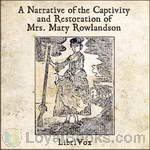 A Narrative of the Captivity and Restoration of Mrs. Mary Rowlandson
A Narrative of the Captivity and Restoration of Mrs. Mary Rowlandson
This is the story of Mary Rowlandson’s capture by American Indians in 1675. It is a blunt, frightening, and detailed work with several moments of off-color humor. Mary, the wife of a minister, was captured by Natives during King Philips War while living in a Lancaster town, most of which was decimated, and the people murdered. See through her eyes, which depict Indians as the instruments of Satan. Her accounts were a best-seller of the era, and a seminal work, being one of the first captivity narratives ever published by a woman... | |
By: J. Walker McSpadden (1874-1960) | |
|---|---|
 Boys' Book of Famous Soldiers
Boys' Book of Famous Soldiers
These 12 stories give a personal portrait of twelve famous soldiers from the past two centuries. Each story explores the early life of the solder —to trace his career up from boyhood through the formative years. Such data serves to explain the great soldier of later years. Summary compiled from the preface of the book. (Summary by philchenevert) | |
By: Helen M. Winslow | |
|---|---|
 Concerning Cats
Concerning Cats
“I have known, and loved, and studied many cats, but my knowledge of her (Pretty Lady, a cat) alone would convince me that cats love people–in their dignified, reserved way, and when they feel that their love is not wasted; that they reason, and that they seldom act from impulse.” The thoughts of Helen Winslow, a thoughtful and articulate cat friend, about the cats in her life. | |
By: Jennie Ellis Keysor | |
|---|---|
 Great Artists
Great Artists
Biographies of Raphael Santi, Murillo, Peter Paul Rubens, and Albrecht Durer. This is a wonderful tool for art study as there are references for further study, as well as ideas for language arts to incorporate into the study. | |
By: John S. C. Abbott (1805-1877) | |
|---|---|
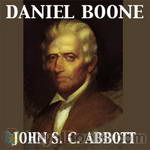 Daniel Boone
Daniel Boone
This is a detailed biography of the life and adventures of Daniel Boone. His accomplishments are brushed over in history classes these days and not given the recognition they deserve. This biography clearly paints a picture of the benevolent person of Daniel Boone as well as the achievements he made in furthering European settlement in America. | |
By: Mrs. Isabella Beeton (1836-1865) | |
|---|---|
 The Book of Household Management
The Book of Household Management
“Mrs. Beeton’s” is a guide to all aspects of running a household in Victorian Britain. Published in 1861, it was an immediate bestseller, running to millions of copies within just a few years. In the cookery sections, Mrs. Beeton follows the animal “from his birth to his appearance on the table.” Learn how to care for poultry during moulting season, how to wean calves, how to cure hams, salt cod, carve mutton, and much more. | |
By: United States Office of Strategic Services | |
|---|---|
 Simple Sabotage Field Manual
Simple Sabotage Field Manual
Formed during World War II, the United States Office of Strategic Services (OSS), was organized for special operations and intelligence gathering and analysis. Included in its mission was the implementation of, and training of foreign forces in, propaganda, espionage, subversion, and sabotage. After the war, OSS functions were transferred to the newly formed Central Intelligence Agency (CIA). This “Simple Sabotage Field Manual” was used by OSS agents in training “citizen-saboteurs” in methods for inciting and executing simple sabotage to thwart industry and other vital functions in Axis-occupied areas. | |
By: Goldsworthy Lowes Dickinson (1862-1932) | |
|---|---|
 The Greek View of Life
The Greek View of Life
“With the Greek civilisation beauty perished from the world. Never again has it been possible for man to believe that harmony is in fact the truth of all existence.”This elegantly-written work provides a splendid introduction to the Greeks of the classic period: how they thought, wrote, and organised their lives and loves. Although it dates from the 1890s, there is very little about it that has dated. To its author’s credit, the subject of “Greek love” is dealt with in a sane and factual context - despite the judicial assassination of Oscar Wilde going on in the background... | |
By: Antonio Colmenero de Ledesma (d. 17th century) | |
|---|---|
 Chocolate: or, An Indian Drinke
Chocolate: or, An Indian Drinke
The Author sings the praises of Chocolate. “By the wise and Moderate use whereof, Health is preserved, Sicknesse Diverted, and Cured, especially the Plague of the Guts; vulgarly called _The New Disease_; Fluxes, Consumptions, & Coughs of the Lungs, with sundry other desperate Diseases. By it also, Conception is Caused, the Birth Hastened and facilitated, Beauty Gain’d and continued.” | |
By: Robert Leighton | |
|---|---|
 Dogs and All About Them
Dogs and All About Them
This comprehensive guide on dog-rearing looks at dogs as more than just pets - as people's best friends. The author describes each breed of dog in a detailed and systematic way, with complete notes on show-dogs. | |
By: United States Rubber Company | |
|---|---|
 The Romance of Rubber
The Romance of Rubber
This pamphlet was published in the early 20th century by the United States Rubber Company so that “coming generations of our country … have some understanding of the importance of rubber in our every day life… We believe the rubber industry will be better off if the future citizens of our country know more about it.” Learn about Christopher Columbus’s discovery of rubber, how the crafty British entrepreneur, Wickham, managed to smuggle rubber seedlings out of Brazil, and how rubber manufacturing came to be a “peculiarly American industry... | |
By: Giorgio Vasari (1511-1574) | |
|---|---|
 Lives of the Most Eminent Painters, Sculptors and Architects
Lives of the Most Eminent Painters, Sculptors and Architects
The Lives of the Most Excellent Italian Painters, Sculptors, and Architects, from Cimabue to Our Times, or Le Vite delle più eccellenti pittori, scultori, ed architettori, as it was originally known in Italian, is a series of artist biographies written by 16th century Italian painter and architect Giorgio Vasari, which is considered "perhaps the most famous, and even today the most- read work of the older literature of art", "some of the Italian Renaissance's most influential writing on art", and "one of the founding texts in art history"... | |
By: Helen Rowland (1875-1950) | |
|---|---|
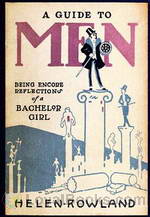 A Guide to Men: Being Encore Reflections of a Bachelor Girl
A Guide to Men: Being Encore Reflections of a Bachelor Girl
A series of occasionally witty one-liners, poems and considerations on the subject of Men, Women and their Conjunction. By turns tender, bland, sexist (in both directions!) and funny. | |
By: Frances M. A. Roe | |
|---|---|
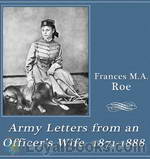 Army Letters from an Officer's Wife, 1871-1888
Army Letters from an Officer's Wife, 1871-1888
"There appeared from the bushes in front of me, and right in the path, two immense gray wolves . . . Rollo saw them and stopped instantly, giving deep sighs, preparing to snort, I knew . . . To give myself courage, I talked to the horse, slowly turning him around . . . when out of the bushes in front of us, there came a third wolf! The situation was not pleasant and without stopping to think, I said ‘Rollo, we must run him down - now do your best’ and taking a firm hold of the bridle, and bracing myself in the saddle, I struck the horse with my whip and gave an awful scream... | |
By: Francis Parkman | |
|---|---|
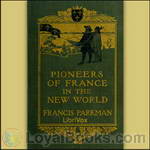 Pioneers of France in the New World
Pioneers of France in the New World
Francis Parkman (1823-1893) has been hailed as one of America’s first great historians and as a master of narrative history. Numerous translations have spread the books around the world. The American writer and literary critic Edmund Wilson (1895-1972) in his book O Canada (1965), described Parkman’s France and England in North America in these terms: The clarity, the momentum and the color of the first volumes of Parkman’s narrative are among the most brilliant achievements of the writing of history as an art... | |
 The Jesuits in North America in the 17th Century
The Jesuits in North America in the 17th Century
Parkman has been hailed as one of America's first great historians and as a master of narrative history. Numerous translations have spread the books around the world. The American writer and literary critic Edmund Wilson (1895-1972) in his book "O Canada" (1965), described Parkman’s France and England in North America in these terms: "The clarity, the momentum and the color of the first volumes of Parkman’s narrative are among the most brilliant achievements of the writing of history as an art... | |
By: Bruce Barton (1886-1967) | |
|---|---|
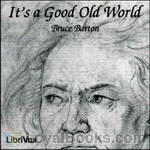 It's a Good Old World
It's a Good Old World
In this collection of essays, Bruce Barton, considered to be among the most influential advertising men of the 20th century, uses history, religion and current events of the 1920s to teach common sense ideals. From Jesus to Beethoven to Napoleon to Abraham Lincoln, Barton uses stories of great individuals to encourage the reader to make the most of life and at the same time to build strong character traits. | |
By: Austin Craig | |
|---|---|
 Lineage, Life and Labors of Jose Rizal
Lineage, Life and Labors of Jose Rizal
LINEAGE LIFE AND LABORS of JOSE RIZAL PHILIPPINE PATRIOTBY AUSTIN CRAIGINTRODUCTION In writing a biography, the author, if he be discriminating, selects, with great care, the salient features of the life story of the one whom he deems worthy of being portrayed as a person possessed of preeminent qualities that make for a character and greatness. Indeed to write biography at all, one should have that nice sense of proportion that makes him instinctively seize upon only those points that do advance his theme... | |